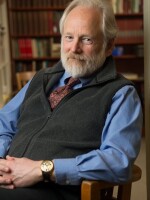I never thought I’d miss Richard Nixon but I’ve been feeling some nostalgia for the old guy – not for what he did, but for what he forced us to do. Forty years ago he summoned Americans to one of our more notable exercises of what the founders called “civic virtue.”
The issue was Nixon’s cover-up of the Watergate affair, which had begun to fall apart by spring 1973. Tough sentencing of the original burglars by federal judge John Sirica and dogged reporting by The Washington Post had started to pull the threads, and the unraveling continued with the resignation of Nixon’s two closest aides and his Attorney-General in late April. But Watergate didn’t fully engage the American public until hearings of the bipartisan Senate Select Committee on Presidential Campaign Activities began on May 18th. For more than 200 hours that summer, all televised, the hearings brought Americans together as fascinated participants in a national debate.
Everyone had a favorite moment. Conservative Democrat Sam Ervin’s folksy but devastating cross-examinations. Republican Howard Baker’s patient questioning, like water on stone, gradually eroding the credibility of witness after witness. Democrat Daniel Inoyue’s muttered aside, “What a liar,” after jousting with Nixon aide John Erlichman, one of a parade of administration officials – cold, contemptuous, sinister – who attempted to mislead and defy the committee. The high point came on July 13th, when former Nixon aide Alexander Butterfield revealed that the president had been secretly taping oval office meetings since 1971, setting off a protracted struggle over the tapes which ultimately led to Nixon’s resignation the following August.
But the really fascinating thing was that the American public became addicted to the hearings. Gavel-to-gavel coverage routinely drew higher ratings than anything else on TV and gave newly established National Public Radio a huge listening audience. Complete strangers gave each other hourly updates, avidly discussed committee procedure, and debated the evidence.
I was a park ranger on Mount Mansfield that summer and have vivid memories of through hikers demanding updates and of heated political debates on the summit. Most of the time up there people talk about three things: the weather, trail conditions, and the view. That summer the regular topic was Howard Baker’s oft-repeated question “What did the president know and when did he know it?”
For the next eleven months people fought over the morning newspapers and debated precisely what the framers meant by the words “high crimes and misdemeanors” in Article II of the Constitution. It was a national drama, but also – and more importantly – a national debate over rights and power. We haven’t had one like it since.
It’s been said that boredom is the disease of democracies. So it’s distressing that this summer’s total gridlock in Washington was matched by a corresponding total lack of public interest.
Nixon would have loved that!





